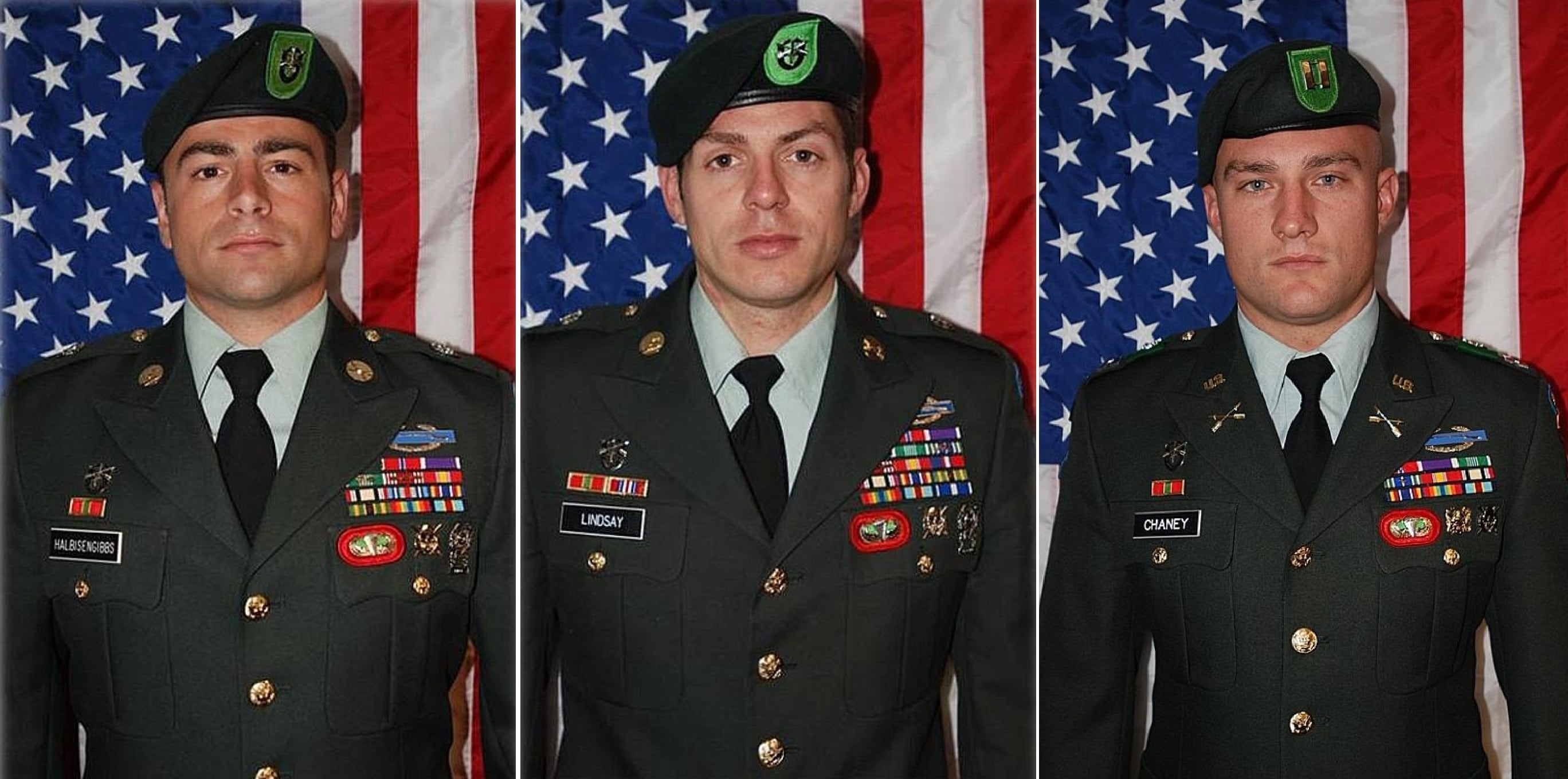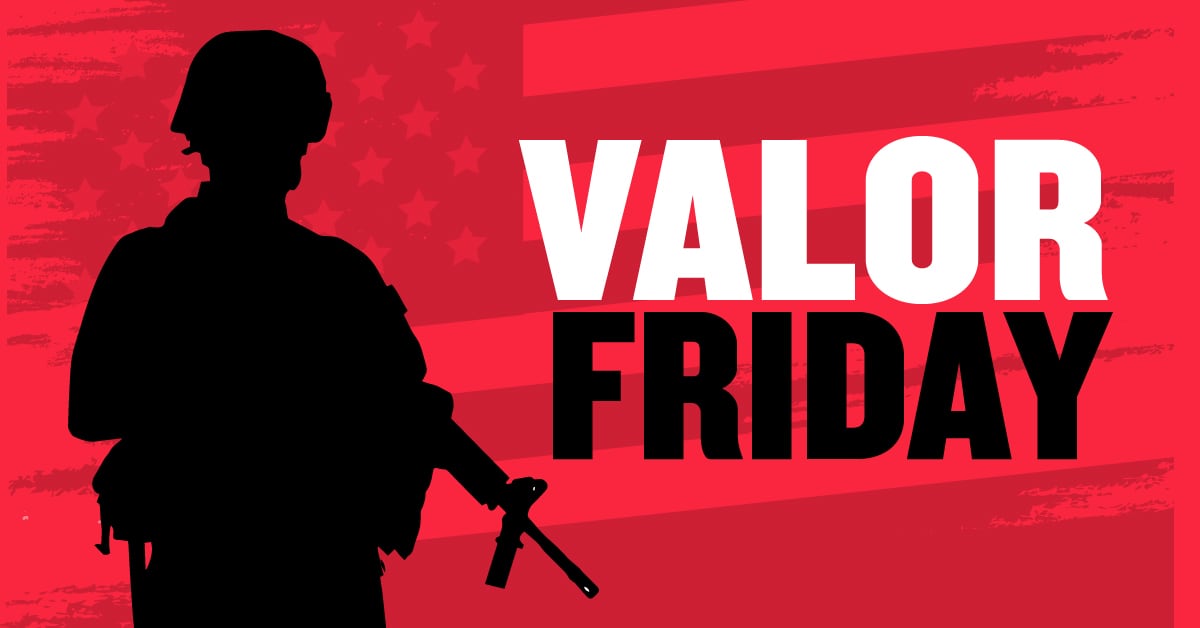A 12-man team from the Colorado-based 10th Special Forces Group was advising Iraqi National Police on Sept. 10, 2007, during a mission to capture a high value target from the Islamic State of Iraq in the area of Samarra, Iraq.
Two helicopters were originally scheduled to deliver the men at 2 a.m. to a field on the outskirts of the village, but when the pilots saw the planned landing zone covered in water, they had to set the assault teams down closer to the target.
The noisy arrival alerted the bodyguards of Abu Obaeideah, the area’s kingpin who had been wanted for a year for killing Iraqis — and their families — who considered joining the police force.

“We normally found more guys asleep [on night raids],” Capt. Matthew A. Chaney, commander of the 12-man team, told the Washington Post in 2007, but “he had over a dozen body guards” who were ready for a fight.
Staff Sgt. Jarion Halbisengibbs, accompanied by Chaney and Sgt. 1st Class Michael D. Lindsay, was part of the assault to disembark from the first helicopter.
Immediately the team members were hit by heavy machine gun fire, and making matters worse, the arrival of the second helicopter created a blinding cloud of dust so thick that the team became overwhelmingly disoriented, making it difficult to find the building from which they were receiving the heaviest volume of fire.
“The brown out was so intense that the Iraqis got lost," Lindsay told the Post. "Vertigo might be a way to describe it, they had no orientation.”
Sensing how dire the situation had become, Halbisengibbs led Lindsay and Chaney, each wearing night vision goggles, on a three-man assault of the building without the help of the Iraqi police force.
After stacking up on the doorway, Halbisengibbs tossed a grenade inside, killing multiple enemy fighters before rushing in to begin clearing the building.
“You could see faceless shapes scurrying around the room grabbing weapons, and less than three seconds we received AK-47 fire,” Lindsay told the Post.
Upon entering the doorway and engaging the enemy with heavy fire, Chaney was shot by a round that went through his pelvis and hip. Lindsay was then hit in the throat moments before an insurgent lobbed a grenade near the assaulting soldiers. The blast threw both Chaney and Lindsay out of the doorway and back into the courtyard. Halbisengibbs was knocked from his feet.
“I was hyperventilating and throwing up,” Lindsay told the Post. Barely able to move after the blast and with machine gun fire impacting everywhere, Lindsay rolled himself over and grabbed for his pistol. “I fired a few rounds so no one would walk over and shoot me."
Not far from Lindsay lay Chaney, who was unable to feel his legs. Remaining as prone as possible, Chaney dragged the body of a dead enemy fighter close to him to use as cover and resumed returning fire, killing one insurgent at close range.
Back inside the building, Halbisengibbs, whose night vision goggles had been destroyed, continued the assault in total darkness.
After locating and killing one of the main shooters, the staff sergeant tripped over a dead enemy fighter. As he fell, he was shot in the thumb, but he quickly regained composure and killed another insurgent in close quarters combat.
Halbisengibbs then moved back to the courtyard to provide cover for his two wounded comrades. As he approached, he was shot in the abdomen.
RELATED

“It felt like white hot lightning shooting through my stomach, and I felt my hip pop out,” he told the Post.
While falling to the ground — and with his injured thumb still attached to his hand only by his glove — Halbisengibbs raised his M4 and killed the fighter who shot him from a distance of only 12 feet.
The staff sergeant, ignoring his wounds, then helped direct the disoriented Iraqi police in finishing the assault.
Over the course of a hellish 10 minutes, the three-man assault team killed Abu Obaeideah and 11 of his crew and helped free a hostage.
“Pretty much the three of them single-handedly secured that objective,” Maj. Will Beaurpere, the men’s commander, told Stars and Stripes.
All three would recover from their injuries.
For his actions, Jarion Halbisengibbs received the Distinguished Service Cross, the Army’s second highest award for valor.
Capt. Matthew Chaney and Sgt. 1st Class Michael Lindsay were presented with Silver Stars.
J.D. Simkins is the executive editor of Military Times and Defense News, and a Marine Corps veteran of the Iraq War.




